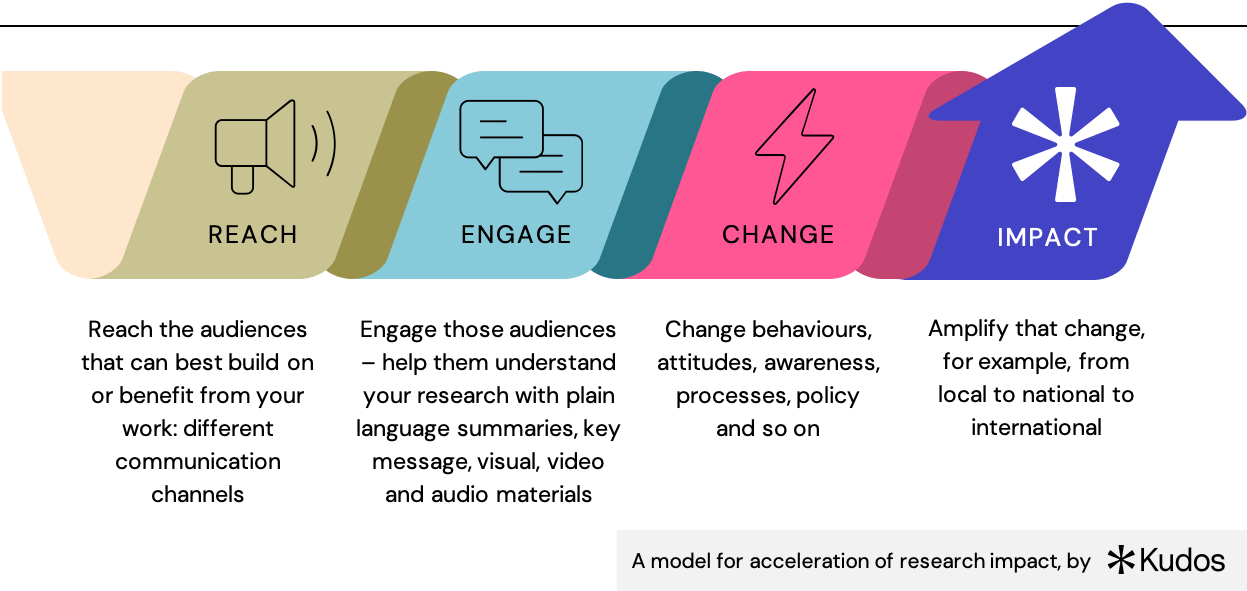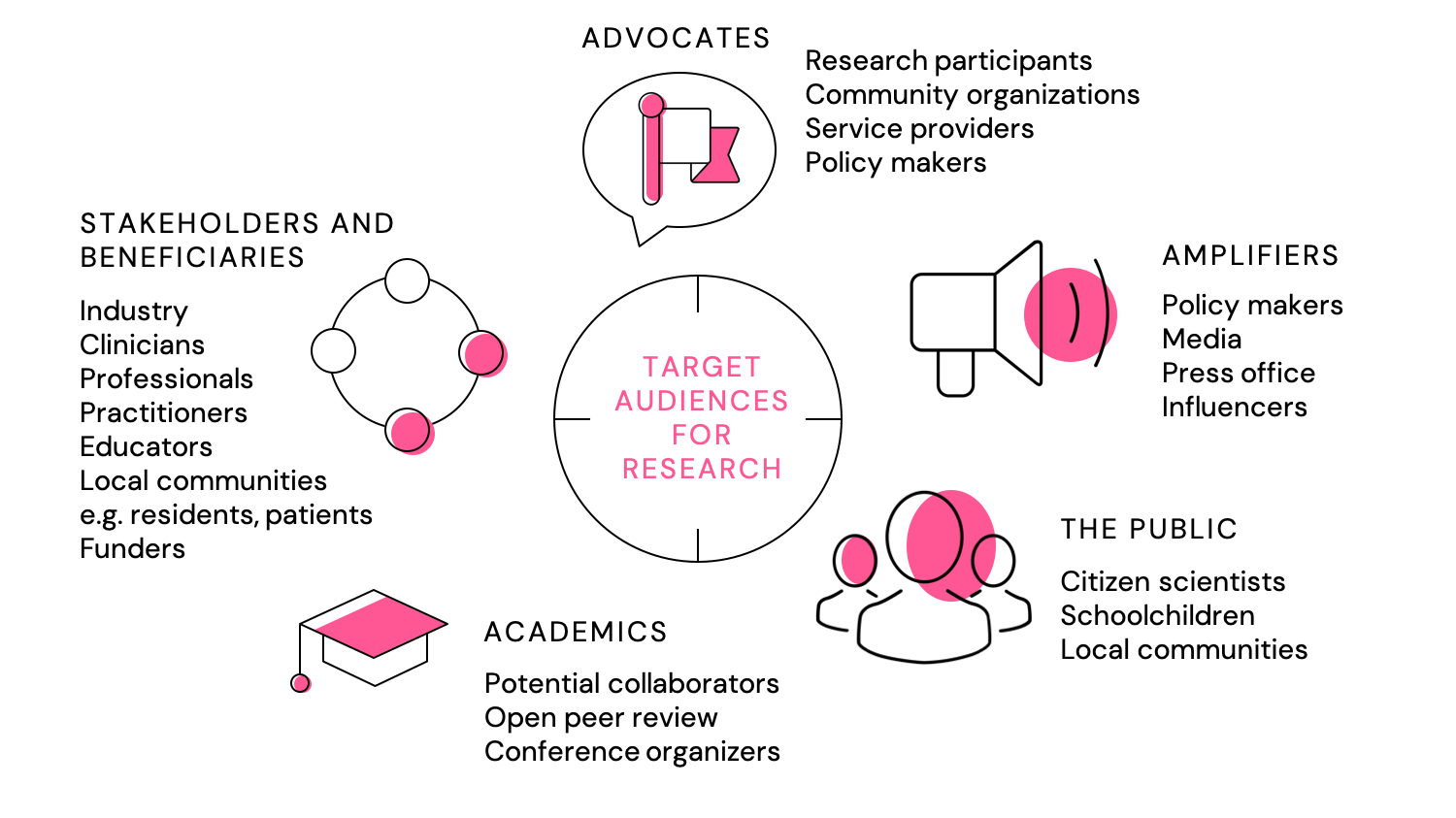Our recent series “what is research impact, why does research impact, and how is research impact achieved” introduced our model for achieving and accelerating impact:

- Download slides containing this chart and graphics from the other 2 posts in the research communication series by Kudos (part 1 and part 2)
I made the point that communication is key at every step you take towards research impact. Many researchers that I have met lack confidence when it comes to research communication. Partly I think this is because people dive in too deep, too quickly – trying to make decisions about formats and channels (where to communicate) before having really worked through who they are trying to reach and what they need to say.
This point was articulated perfectly by a research funder I interviewed for a study I led exploring the challenges of getting research picked up and used outside of academia.
“Researchers need to get better at extracting the key message for the audience they are targeting. Some of this conversation gets quite simplistic, about you know, social media, or infographics. We need to have a much more detailed conversation about communication: to who, about what.“
That “detailed conversation” doesn’t need to be as complicated as you think. In this series of 3 blog posts we’ll work through the “who, what, where” of research communication – starting today, with “who”.
Who is your research for?
There are many difference audiences within which you might be trying to build visibility, influence and impact.

- Download slides containing this chart and graphics from the other 2 posts in the research communication series by Kudos (part 1 and part 2)
Stakeholders and beneficiaries
Firstly, there are stakeholders and beneficiaries: people who actually have a stake in your work or might benefit from or apply your findings. These include industry, clinicians and other types of professionals and practitioners, educators, local communities.
Advocates
Then there are people who might help you reach some of those audiences by acting as advocates for your work. These might include participants in the research, organizations that represent communities you’re trying to engage, or policy makers with existing networks and influence in those communities.
Amplifiers
Next, there are people who can help amplify your work – policy makers are also helpful here, as are the media, and other “influencers”, whether that’s social media, or community terms. Building visibility, recognition and credit within each of these communities can help you improve the likelihood and success of working with them in future.
Wider public
The general public is another audience that many researchers are trying to engage. Maybe as stakeholders and beneficiaries, but maybe also for the purposes of public interest in and support or credit for your field of research.
Other academics
Lastly here of course, other academics will also be an audience you are trying to engage and within which you are hopeful of recognition.
Next up: what to say to these audiences
When you think about building visibility and recognition with these different audiences, it’s important to remember that scholarly language and publications aren’t always the best way to communicate your research to them. Much of research communication follows very traditional academic structures and uses dense, technical language. Even for people within the field, it takes time to extract the main points. For people outside the field, it’s even harder. In our next post, we’ll look at the “what” of research communication – how to draw out the key messages of your research and explain them in a way your target audiences will understand.
Getting started with research communication and impact
The things you do to communicate and disseminate your research are the vital “missing link” between the research that you do and the impact you hope to achieve. At Kudos we have spent 10 years helping researchers develop impact through better research communication and dissemination. Get started now – you can register for free and then pick the tools and services you need.




